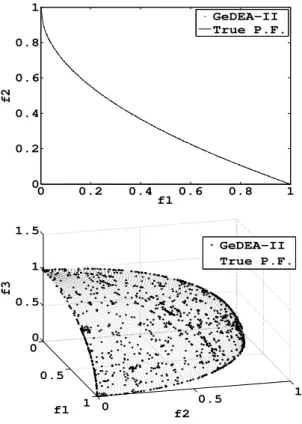GeDEA-II: A Novel Evolutionary Algorithm for Multi-Objective Optimization Problems Based on the Simplex Crossover and The Shrink Mutation
Texto
Imagem



Documentos relacionados
The proposed discard methodology of variables is efficient on the multicollinearity reduction and the number of discarded physiological quality descriptors is higher on the
The detailed analysis demonstrated evidently that the proposed algorithm works well for different optimization problems, various number of design variables and
The probability of attending school four our group of interest in this region increased by 6.5 percentage points after the expansion of the Bolsa Família program in 2007 and
No que tange aos determinantes do envelhecimento, sumarizando o referido anteriormente, é relevante e de salientar que as desigualdades em saúde são complexas e
This will be done in the algorithms presented in Chapter 4 where the problem of reducing the number of membership functions in linguistic variables will be
The screening design allowed a reduction in the number of decision variables for an optimization problem and also gave insights into the process by estimating the main effects..
The paper is organized as: Section I presents a short introduction about Intelligent Assistive Technologies, ICT, exergaming and therapy-based game for older adults with
Events can be rejected based on global event variables such as charged track multiplicities and the number of interactions, as reconstructed by the Pile-Up system, to assure that